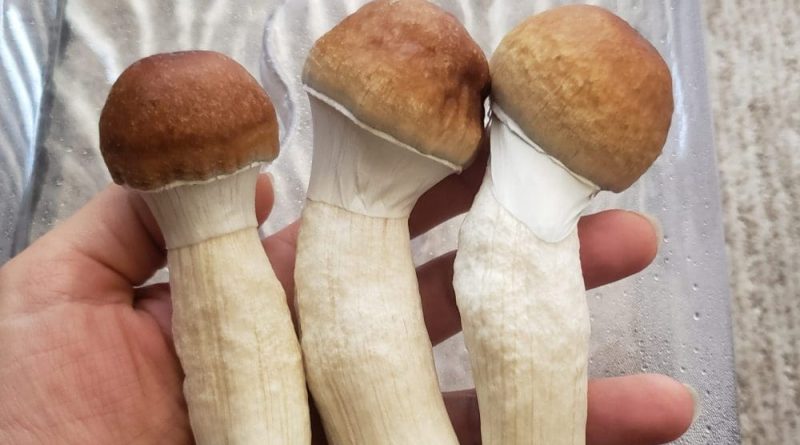Psychedelic Therapy Can Help Reduce Problematic Alcohol And Tobacco Use, Scientific Review Shows
From toxifillers.com with love
A new scientific review on psychedelics as a possible treatment for substance use disorders finds that psilocybin-assisted psychotherapy “showed significant reductions in alcohol consumption and high smoking cessation rates” and has potential to lessen opioid dependence.
Psilocybin-assisted therapy (PAP) “was associated with significant reductions in alcohol consumption, smoking cessation, and related psychological improvements,” says the research, published last month in the journal Neuroscience & Biobehavioral Reviews.
The review looked at 16 studies, most of which were open-label or observational. Few were randomized controlled experiments, which authors said “underscor[es] the need for robust clinical trials.”
Research into alcohol use disorder found participants who underwent psilocybin-assisted therapy “reported fewer heavy drinking days, increased abstinence rates, and neuroimaging data indicating normalization of brain activity.”
Studies into PAP and tobacco use disorder, meanwhile, “demonstrated high smoking abstinence rates, with mystical experiences predicting long-term outcomes.”
“Findings for other SUDs [substance use disorders] were mixed,” authors wrote, “though psilocybin showed potential in reducing opioid dependence and nicotine use.”
The new review was authored by a 15-person research team from St. Michael’s Hospital in Toronto, the New York University Center for Psychedelic Medicine, the Center for Psychedelic Research at Imperial College London, Western University in Canada, the University of South Adelaide in Australia, Leiden University Medical Center in the Netherlands and the universities of Alberta, Calgary, Ottawa and Toronto.
“By synthesizing data from multiple studies,” they wrote, “we seek to provide a clearer and updated understanding of psilocybin’s therapeutic potential and its applicability across different types of SUDs.”
Despite a lack of robust research, especially outside tobacco and alcohol use, the report says that “psilocybin was generally well-tolerated, and in studies where it was combined with psychotherapy, [showed] significant reductions in reported substance use.”
The results come on the heels of a separate report earlier this year that looked at the use of psilocybin-assisted therapy to treat methamphetamine use disorder. It found that the treatment “was feasible to implement in an outpatient setting, did not appear to generate safety concerns, and demonstrated signals of effectiveness warranting further investigation.”
That study, published by The Lancet as a preprint in January, found that among a small group of people in a stimulant treatment program, “Methamphetamine craving decreased while quality of life, depression, anxiety, and stress improved from baseline to day 28 and 90 follow-up.” Authors noted there are currently few effective treatments for methamphetamine use disorder.
Last summer, meanwhile, two other studies—including one with contributions from a top federal drug official—examined psychedelics and alcohol use disorder (AUD).
One found that a single dose of psilocybin “was safe and effective in reducing alcohol consumption in AUD patients,” while the other concludes that classic psychedelics like psilocybin and LSD “have demonstrated potential for treating drug addiction, especially AUD.”
The National Institutes of Health last year also announced that it would put $2.4 million toward funding studies on the use of psychedelics to treat methamphetamine use disorders—funding that came as federal health officials noted sharp increases in deaths from methamphetamine and other psychostimulants in recent years, with fatal overdoses involving the substances rising nearly fivefold between 2015 and 2022.
In 2023, meanwhile, the National Institute on Drug Abuse (NIDA) announced a $1.5 million funding round to further study psychedelics and addiction.
Other recent research has also suggested that psychedelics could unlock promising new pathways to treat addiction. A first-of-its-kind analysis in 2023 offered novel insights into exactly how psychedelic-assisted therapy works for people with alcohol use disorder.
Last year, meanwhile, the National Center for Complementary and Integrative Health (NCCIH), which is part of the National Institutes of Health, identified the treatment of alcohol use disorder as one of a number of possible benefits of psilocybin, despite the substance remaining a Schedule I controlled substance under U.S. law.
The agency highlighted a 2022 study that “suggested that psilocybin may be helpful for alcohol use disorder.” The research found people who were in psilocybin-assisted therapy had fewer heavy-drinking days over 32 weeks than the control group, which NCCIH said “suggests that psilocybin may be helpful for alcohol use disorder.”
Outside of psychedelics, research from 2019 indicated that the cannabinoid CBD may also have the potential to treat substance use disorders involving cocaine, amphetamine and methamphetamine—adding to earlier research showing the cannabinoid has the potential to help people battling substance use disorders involving alcohol and opioids.


